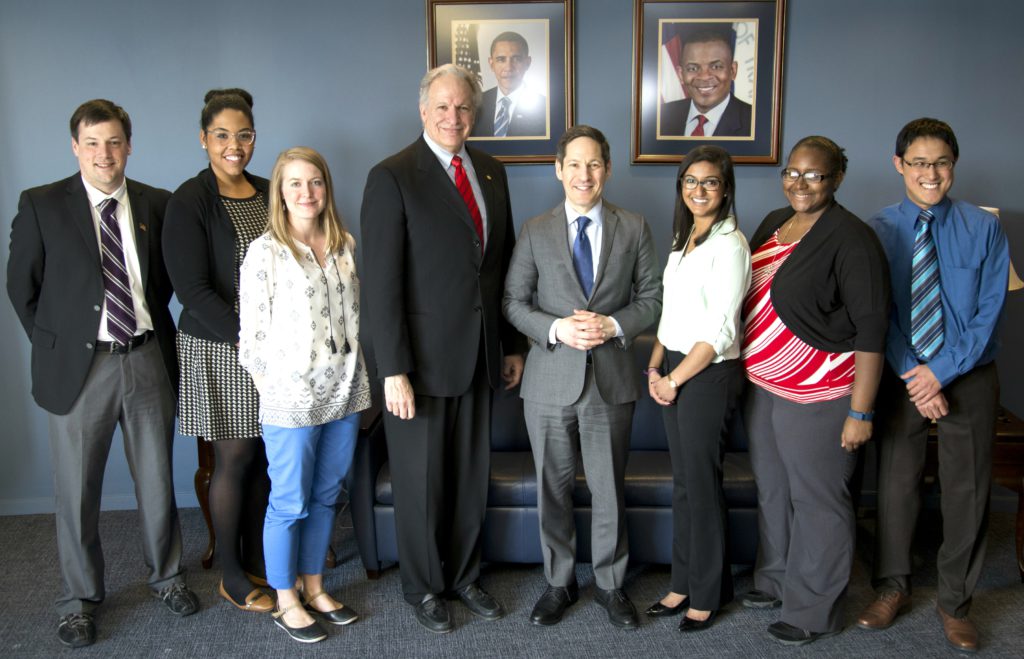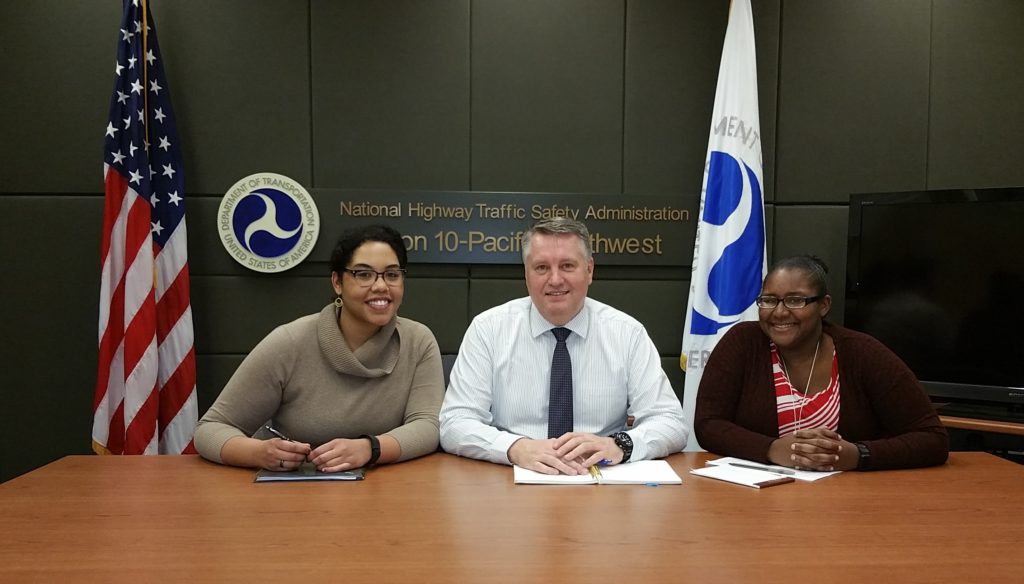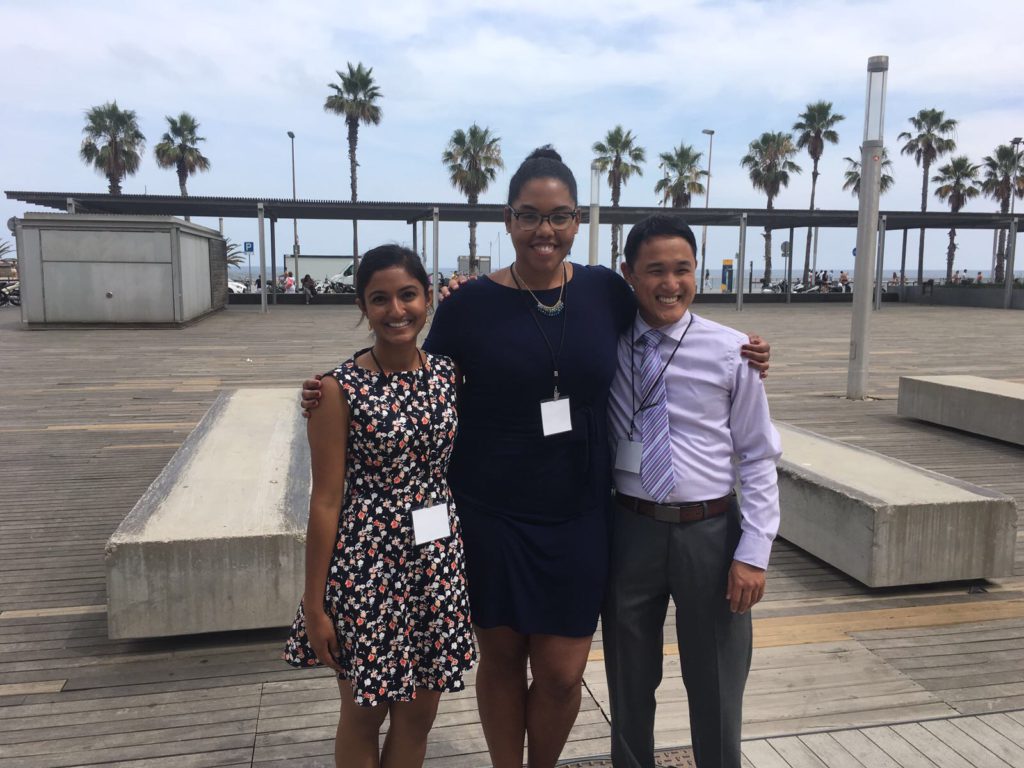
The Association of Schools and Programs of Public Health (ASPPH) sponsors several unique fellowship programs related to environmental and public health. In collaboration with the U.S. Department of Transportation (DOT) and the National Highway Traffic Safety Administration (NHTSA), the ASPPH / NHTSA Public Health Fellowship Program is an immersive training opportunity for early career professionals and recent graduates with doctoral or master’s degrees in public health. The fellowship provides funding and training with experienced NHTSA professionals and national experts in injury prevention.
To learn more about the ASPPH / NHTSA Public Health Fellowship, we spoke to current fellow Nicole Booker about her experience with the fellowship program and tips for those applying for the fellowship. ASPPH / NHTSA Public Health Fellows are allowed up to three years of renewed contracts, and Nicole is currently entering her third and final year in the program.
1. What inspired you to apply for the ASPPH / NHTSA Public Health Fellowship?
While completing my master’s program, I worked part-time at the Emory Center for Injury Control and volunteered for an intimate partner violence (IPV) research study. During that time, I learned a lot about the socio-contextual determinants of health and violence but had limited experience in unintentional injury (drowning, traffic safety, etc.). I had never heard of the National Highway Traffic Safety Administration (NHTSA), but after some research, I realized they were the agency behind the “Click it or Ticket” campaign that I grew up with! NHTSA has a prestigious reputation for their life-saving work in traffic safety. I decided that the ASPPH / NHTSA Public Health Fellowship was a great opportunity to do important work while gaining exposure in unintentional injury prevention at the federal level.

2. How has the ASPPH / NHTSA Public Health Fellowship experience influenced or changed your way of thinking?
I have grown tremendously during my 2.5 years in Washington, D.C. and one of my favorite takeaways is a new perception of the word “accident.” I no longer use that term to describe car crashes because I have learned to view motor vehicle crashes as 100% preventable, and every fatality as unacceptable. During my fellowship, NHTSA initiated a “Road to Zero” program which commits to utilizing education, engineering, enforcement, and emergency medical services to reach zero deaths on our roadways within the next 30 years. Road to Zero brings together a diverse set of stakeholders to solve the shared problem of transportation safety. This comprehensive approach is unprecedented as a federal initiative from the Department of Transportation (DOT). One aspect of this transition I find fascinating is how the program has embraced automated and advanced technologies in the effort to eliminate human error, which is currently the main cause of traffic crashes. In preparation for the inevitable increase in human-technology interaction, NHTSA held a series of behavioral summits to discuss best practices with national experts in human centered design, social media marketing strategy, behavioral science, and economics. One of my favorite speakers was Cass R. Sunstein, a renowned professor, author, and former Administrator of White House Office of Information and Regulatory Affairs. He talked about a theory of choice architecture to “nudge” people into making better decisions, and the potential to apply the “art of the nudge” to traffic safety. Now, making the right choice the easy choice is a fundamental component of my injury prevention work. NHTSA’s transition to an innovative and multidisciplinary approach to transportation safety has shown me the importance of collaboration and thinking outside of the box, and I am thankful for the opportunity to have taken part in this transition as a fellow.

3. What tips would you give others applying to the ASPPH / NHTSA Fellowship?
You will need to write an essay describing your motivation for pursuing the ASPPH/NHTSA Public Health Fellowship. I think it’s essential to express genuine interest in NHTSA’s mission of “saving lives, preventing injuries, and reducing crashes.” If you don’t have research or program experience directly related to traffic safety, it’s okay! I recommend talking about how you plan to expand and leverage your skill set to contribute to NHTSA’s mission. If you’re still struggling to find your connection, consider your personal life. Most people have been impacted by traffic safety interventions throughout their lives (seat belts, speeding tickets, car seats, etc.). You can also talk about how you have benefited from these safety advancements and where you think there is still room for improvement.
Two important characteristics for this fellowship are self -motivation and flexibility. As a fellow, you are given a mentor for guidance, but you are responsible for initiating and completing your own projects. Likewise, you will be exposed to a variety of topic areas and methods that you may not be familiar with. If you keep an open mind, you are more likely to learn something new and find important takeaways from each experience.
Nicole is an Association of Schools and Programs of Public Health (ASPPH) Fellow in the Office of Occupant Protection at the National Highway Traffic Safety Administration (NHTSA) in Washington, D.C. Her work focuses on child passenger safety, safety messaging for diverse populations, primary seat belt laws, and disparities in motor vehicle injuries and fatalities. Additionally, she is involved in a multi-agency coalition aimed at making occupant protection a public health priority. Nicole holds a Master of Public Health from Emory University and an undergraduate degree in Health Services Administration. Nicole’s research interests include injury prevention, the socio-contextual determinants of health, and health policy.
© Victoria Johnson 2017, all rights reserved.